Explore CIGI cannot be displayed on your mobile device. For the best experience, please view on a desktop browser.
Otherwise you can continue viewing the CIGI 2017 Annual Report.
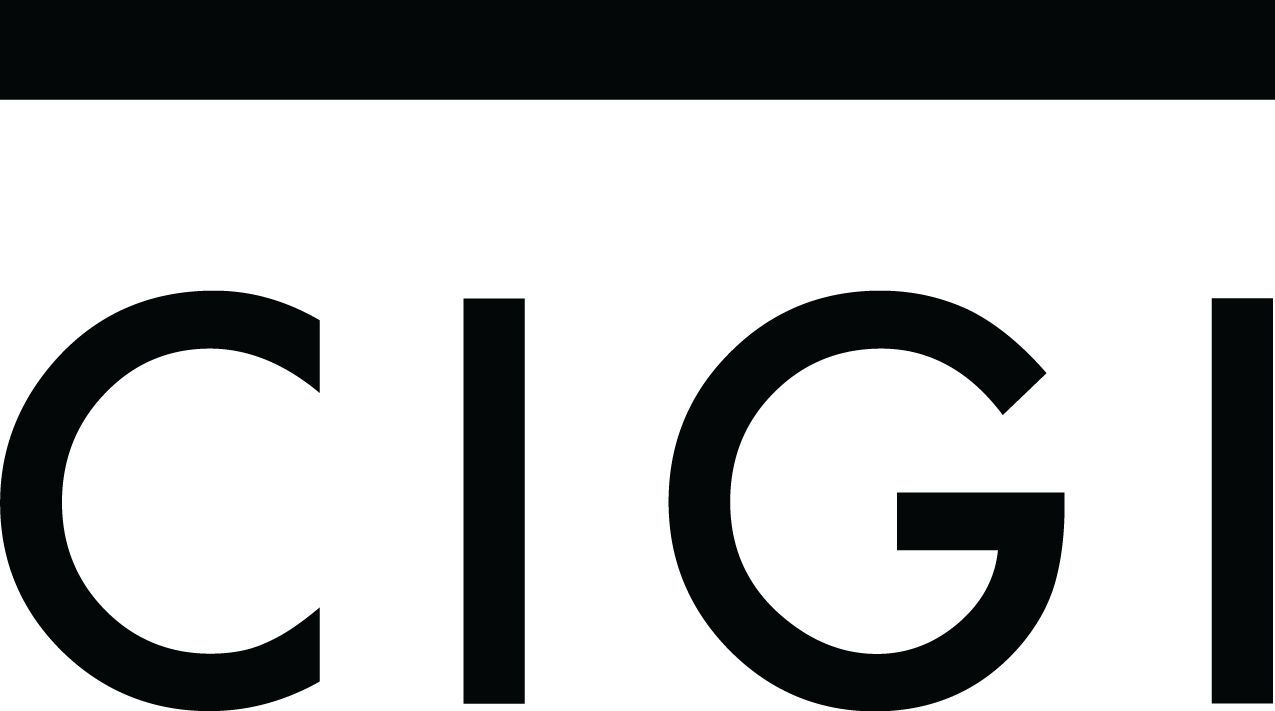
Explore CIGI cannot be displayed on your mobile device. For the best experience, please view on a desktop browser.
Otherwise you can continue viewing the CIGI 2017 Annual Report.
We are the Centre for International Governance Innovation: an independent, non-partisan think tank with an objective and uniquely global perspective. Our research, opinions and public voice make a difference in today’s world by bringing clarity and innovative thinking to global policy making.
Our globalized economy has seen, in a very short amount of time, a fundamental shift away from the delivery of goods and services to international commerce based on ideas. Changing intellectual property (IP) regimes, new trade agreements and rapidly evolving technologies demand up-to-date responses from researchers and thought leaders.
CIGI has responded with a new organizational approach to these issues. A redesigned website serves as a digital platform to combine research and expertise to deliver journalistic analysis. It is an approach that builds on CIGI’s already solid research programs to deliver trustworthy and timely content that stands out amidst a noisy field of information providers with little quality control.
Already, CIGI has delivered a wealth of original research accompanied by timely and in-depth analysis, multimedia interviews and explanatory pieces. From the North American Free Trade Agreement (NAFTA) to innovation, this digital-first content demonstrates CIGI’s commitment to meeting the needs of today’s decision makers while reaching new audiences.
In the policy arena, CIGI responded quickly to the announcement of NAFTA renegotiations, publishing a series of original pieces and interviews on NAFTA and the knowledge economy. CIGI experts simultaneously participated in discussions with Canadian government officials looking for a road map on trade, innovation and IP under a NAFTA 2.0.
CIGI has also led conversations around a new approach to stimulating innovation, which is much needed to drive economic development and prosperity at a time when policies and incentives have not always kept up with our changing economy. The New Thinking on Innovation series kicked off the conversation, and CIGI has also looked to the main drivers of innovation — people and the societal contexts that foster their successful innovations.
The innovation lens extends to global governance questions. CIGI’s World Refugee Council, led by former Canadian Minister of Foreign Affairs Lloyd Axworthy, brings together the best and brightest refugee experts, former presidents and prime ministers, civil society leaders, a Nobel Peace Prize laureate and others to bring bold thinking and innovative approaches to this global problem.
Our many global and local partners can be proud of CIGI’s new approach this year. It would not have been possible without their support — especially from the Governments of Canada and Ontario, and the City of Waterloo — to help make CIGI a relevant, trusted and innovative Canadian think tank with a global perspective.
Jim Balsillie
Chair, CIGI Board of Directors
Beginning in Bretton Woods in 1944, groups of powerful nations organized the economic and political arrangements that serve us, albeit imperfectly, to this day. But rapid developments in technologies are upending established structures in every part of the economy and society.
Moreover, conversations defined by rising nationalism and populism on social media are daily challenging the institutions we follow closely. A stream of “fake news” contributes to rapidly growing distrust in established institutions while, in parallel, so-called legacy media is declining, particularly in North America and Europe.
At the Global Think Tank Summit CIGI hosted in September 2016 with the Think Tanks and Civil Societies Program at the Lauder Institute of the University of Pennsylvania, these topics were at the fore of our conversations. I spoke to the need for think tanks to be nimble and to respond quickly with our knowledge in a fast-changing digital environment.
And CIGI has responded quickly. We have fundamentally shifted the way we present and communicate our core competencies — research, expertise and analysis. CIGI’s new identity, launched with a redesigned website, demonstrates much about who we have become as an organization: an innovative global think tank that delivers influential research and trusted analysis.
An example of this is CIGI’s New Thinking on Innovation series, a collection of timely essays published exclusively online in the spring of 2017. These essays breathed new life into discussions around strategies to drive innovation and prosperity that will continue to influence policy in Canada and elsewhere.
In the series, corporate leaders, economists, and trade and international law experts brought perspective and specific policy recommendations for international trade agreements, patent systems and intellectual property strategies, and the role global institutions like the Group of Twenty (G20) can play in supporting innovation in smaller countries.
The success stories featured in our first-ever digital annual report, itself an example of the innovation we are cultivating at CIGI, collectively tell a story that is the product of in-depth research, studied expertise and timely analysis: informed dialogue with decision makers and meaningful public discourse.
Whether through participating in the G20 or other major fora, CIGI will continue to work through forward-looking, evidence-based deliberation to reach a new Bretton Woods moment for our times. We take seriously the “innovation” and “governance” in our name, which will help get us there.
Rohinton P. Medhora
President, CIGI

From its opening lines about the high-profile hack of extramarital affair website Ashley Madison and later analysis of Edward Snowden’s revelations of government spying on internet users, Look Who’s Watching: Surveillance, Treachery and Trust Online demonstrates that public trust in the internet is often misplaced and is quickly eroding.
Global Security & Politics Program Director Fen Osler Hampson and Research Fellow Eric Jardine draw on extensive research, including multiple CIGI-Ipsos surveys and the final report of the CIGI-Chatham House Global Commission on Internet Governance, to examine why users are losing trust in the internet. They conclude that restoring trust in the internet is vital and possible through deliberate policy action.
Look Who’s Watching is a semifinalist for the prestigious 2018 Grawemeyer Award, was listed among the best books of 2016 by The Hill Times and is shaping conversations in university classrooms through course adoptions.

The latest book by senior fellow and journalist Paul Blustein, Laid Low: Inside the Crisis That Overwhelmed Europe and the IMF, goes behind the scenes at the highest levels of global economic policy making, chronicling the International Monetary Fund’s (IMF’s) role in the euro-zone crisis.
Opening with the sensational arrest of IMF Managing Director Dominique Strauss-Kahn, the book reveals that this sordid episode was only one in a series of setbacks for the IMF as financial conflagration spread from Greece to Ireland, Portugal, Spain, Italy and Cyprus — threatening to engulf a region comprising nearly one-fifth of world economic output.
Foreign Affairs praised Laid Low’s authoritative account of the euro-zone crisis: “Until now, a serious treatment of the International Monetary Fund’s role in the crisis has been missing.” A sentiment doubtlessly echoed by government officials in Washington, who asked Blustein to testify before the US Congress on “Lessons from the IMF’s Bailout of Greece.”

In 2016, Canada’s Indigenous and Northern Affairs Minister Carolyn Bennett declared that Canada embraced and was a full supporter of the United Nations Declaration on the Rights of Indigenous Peoples (UNDRIP) and pledged to work with Indigenous peoples to implement it domestically.
International Law Research Program Director Oonagh Fitzgerald’s team responded by bringing together recommendations from Indigenous legal scholars and policy leaders on how Canada can build a new legal framework through the implementation of UNDRIP, revive a stalled process of reconciliation and embrace a true nation-to-nation relationship with Indigenous peoples. The resulting special report, UNDRIP Implementation: Braiding International, Domestic and Indigenous Laws, was launched in Ottawa and became one of CIGI’s most-read digital publications of the year with 650 online downloads.
As Indigenous issues made headlines throughout the spring, the report’s authors shared their expertise at subsequent events in Winnipeg and Geneva. Influential policy makers also took notice: the report was retweeted by Minister Bennett, Senator Ratna Omidvar and Ontario Human Rights Commissioner Renu Mandhane.

CIGI’s research on Canada’s Arctic policy culminated in a September 2016 event marking the twentieth anniversary of the Arctic Council. Co-hosted with Global Affairs Canada and Carleton University, the event drew ambassadors of Nordic countries, representatives from Northern governments, Indigenous leaders and senior Canadian policy makers.
It was an ideal opportunity to launch North of 60: Toward a Renewed Canadian Arctic Agenda, a special report edited by Senior Fellow John Higginbotham and Carleton University Research Associate Jennifer Spence. The report helps shape Canada’s Arctic agenda by bringing together pointed essays and interviews from leading Arctic experts on the complex social, environmental, economic and political circumstances that Northerners face.
The event, which included remarks from Canada’s Parliamentary Secretary of Foreign Affairs Pamela Goldsmith Jones, brought significant media coverage. In March 2017, CIGI co-hosted a follow-up event on the North American Arctic with the Wilson Center, featuring an address from US Senator Lisa Murkowski.

New research from Senior Fellow Céline Bak focused on low-carbon economic policies in the run-up to the 2017 Think 20 (T20) and Group of Twenty (G20) meetings in Germany. As co-chair of the T20 Task Force on Climate Policy and Finance, her group’s recommendations drove discussions among leaders looking for global solutions to foster a low-carbon economy.
Generating Growth from Innovation for the Low-carbon Economy: Exploring Safeguards in Finance and Regulation looks at ways to build on momentum created by the Paris Agreement on climate change to double investments in energy innovation by 2020. International law research also contributed by analyzing the role of geoengineering and border carbon adjustments.
Bak subsequently presented her research to Canada’s Parliamentary Standing Committee on Natural Resources, incorporated the theme of the brief in a joint letter from T20 groups opposing the US withdrawal from the Paris Agreement, hosted a meeting with public and private sector leaders to consider a road map toward green finance, and was a popular spokesperson on the G20’s approach to climate action.

Canadian economist and Senior Fellow Jeff Rubin is a world-leading energy expert and former chief economist and chief strategist at CIBC World Markets. His research papers, The Case for Divesting from Fossil Fuels in Canada and Economic Opportunities from a Changing Climate, were two of CIGI’s most-downloaded publications this year.
Rubin calls on institutional investors, including pension plans and banks, to reassess their exposure to fossil fuel industries and suggests energy leaders consider the opportunities brought on by climate change in the wind and solar power industries. He also notes “climate change has the potential to turn Canada into one of the world’s principal breadbaskets.”
His work inspired discussion in news media (with interviews on CBC, Business News Network, The Globe and Mail and The Toronto Star, to name a few) and at events, including a public lecture and question period to a packed house at CIGI’s auditorium in May 2017.

Innovation is at the heart of the knowledge economy and an engine of prosperity. Yet in Canada, productivity has been stubbornly flat for the past 30 years — leading to a preoccupation with policies that stimulate innovation.
CIGI responded in the spring of 2017 by bringing together top scholars and practitioners to offer fresh perspectives and policy approaches for Canada and for the global economic cooperation system. The resulting series of 18 online essays, New Thinking on Innovation, addressed a wide range of topics, from the role of international trade in stimulating innovation to the impact of intellectual property strategies on competitiveness.
The exclusively online series, a first for CIGI, ushered in a new school of thought on innovation policy and was accompanied by video interviews and animation. Its creative delivery and stellar lineup of authors generated over 78,000 views and sparked online engagement from television personalities, entrepreneurial networks and government officials.
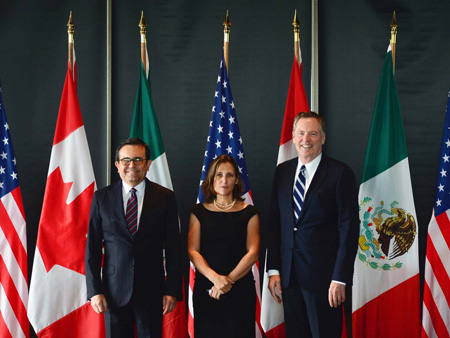
From the moment US President Donald Trump’s administration set in motion the renegotiation of the 25-year-old North American Free Trade Agreement (NAFTA), CIGI has been Canada’s leading resource for timely, expert analysis with over 700 media mentions.
Senior Fellow Patrick Leblond’s first-out-of-the-gate research on modernizing NAFTA led to opinion editorials in Maclean's and The Globe and Mail, and was followed by a series of digital essays on what modernizing the trade accord will mean for the knowledge economy in Canada and the people who turn ideas into innovations within the free trade zone. At the same time, Senior Fellow Armand de Mestral’s work on investor-state arbitration — including the book Second Thoughts, which he edited — explored questions about dispute settlement under trade agreements.
This expansive offering of CIGI analysis, showcasing experts from across the organization, brought perspective to the risks and benefits of updating trade agreements like NAFTA, which President Trump called “the worst trade deal maybe ever signed anywhere.”
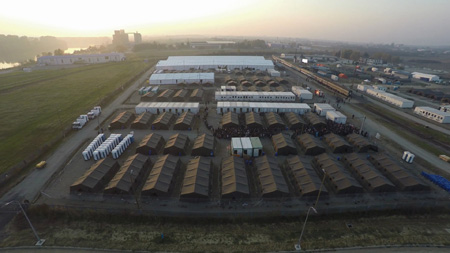
Twenty-one million people are refugees and the number continues to rise. The international response has been uneven, prompting CIGI to convene thought leaders and innovators from around the globe to advance a new vision of global cooperation for refugee protection.
The World Refugee Council is chaired by Lloyd Axworthy, former Canadian minister of foreign affairs, and co-chaired by Jakaya Kikwete, former president of Tanzania; Hina Jilani, an advocate of the Supreme Court of Pakistan; and Rita Süssmuth, immigration reform advocate and former president of the German Bundestag.
Launched with the support of the Government of Canada and other institutions, the council was lauded by Canadian Minister of Foreign Affairs Chrystia Freeland and civil society groups when it was publicly announced in May 2017. The council’s bold mandate has also been met with passionate online interest, generating over 370,000 social media impressions and 10,000 engagements.

In collaboration with the Ontario Ministry of Research, Innovation and Science, CIGI organized a series of round tables on innovation and intellectual property (IP) strategy with policy makers, academics and representatives of Canada’s business community that helped establish CIGI as a nationwide resource for policy advice on IP innovation.
CIGI’s legal experts have also been working to support new entrepreneurs and innovators with early access to IP legal support. In February 2017, CIGI announced a new partnership with York University to expand the IP Osgoode Innovation Clinic. The clinic provides pro bono basic legal services in IP law and business-related issues, with students working and learning alongside lawyers to assist early entrepreneurs who cannot afford to pay the costs.
Bassem Awad, deputy director, intellectual property law and innovation, sees the venture as a potential model for raising IP awareness and delivering legal advice that could be applied in other countries.

CIGI organized a round table chaired by Senior Fellow Julie Maupin, an expert in blockchain and international economic law, on blockchain technology and climate change policy in June 2017. Technology, law and policy experts gathered in Toronto to discuss how distributed ledger technologies could provide solutions for tackling climate change under the Paris Agreement.
Previously, in March 2017, Maupin authored a policy brief on using blockchain and international law governance to solve global governance challenges. Her research demonstrates that the time has come for an open dialogue between the tech sector and lawmakers, many of whom find it difficult to understand the impact of the internet and the way we manage internet transactions.
CIGI’s expertise on blockchain led to invitations to participate in the largest Ethereum hackathon to date with over 400 hackers in attendance, and a hackathon at COP23 in Bonn that brought blockchain solutions to the attention of climate negotiators.
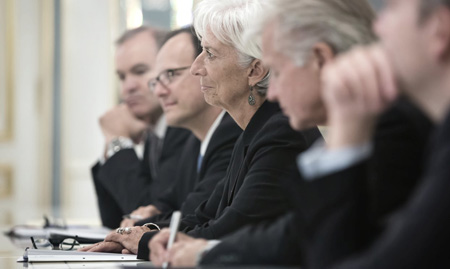
The meetings of the International Monetary Fund (IMF) and the World Bank Group bring together an impressive group of leaders, executives and academics to discuss subjects of global concern with specific attention to the outlook of the economy, global financial stability and economic development. CIGI plays a significant role in those discussions.
At the 2016 annual meetings, CIGI and the Euro50 Group presented a timely panel on the euro zone after Brexit. At the spring meetings, CIGI and the Atlantic Council hosted a panel on Ukraine’s controversial banking reform tactics, which featured an introduction to the issue from Valeria Gontareva, governor of the National Bank of Ukraine. Senior Fellow Susan Schadler, who has more than three decades of experience at the IMF, participated as a panellist.
CIGI policy briefs, papers, videos and social media complemented the presence of fellows attending the meeting, resulting in some 250 articles in major media outlets including the Financial Times, The New York Times and The Wall Street Journal.

CIGI convened its first G20-focused group in December 2009, when it helped lay the groundwork for the forum to expand from national finance ministers to leaders. Eight years later, CIGI experts from all three programs led discussions at the 2017 G20 summit and T20 meetings.
Global Security & Politics Program Director Fen Osler Hampson participated in the T20 plenary, Digitalization: Enabler of Inclusive Global Growth and Development, and co-chaired the T20 Task Force on the Digital Economy. Several CIGI colleagues, including Distinguished Fellow Eileen Donahoe, also contributed to these pressing discussions, tasked with developing policy recommendations around cybercrime attacks on financial institutions, blockchain technology’s future and bridging the digital divide.
CIGI published more than 20 publications on G20 issues prior to the Hamburg G20 Summit, and Distinguished Fellow Thomas A. Bernes helped carry the message at the summit by providing on-the-ground insight to news media. The resulting interviews contributed to CIGI’s widest G20 media reach yet, with almost 400 media mentions.
Report of the Independent Auditors on the Summary Financial Statements
To the Directors of The Centre for International Governance Innovation,
The accompanying summary financial statements, which comprise the summary balance sheet as at July 31, 2017 and the summary statement of revenue, expenses and changes in fund balances for the year then ended, and related notes, are derived from the financial statements of The Centre for International Governance Innovation (the “Organization”) as at, and for the year ended, July 31, 2017. We expressed an unmodified audit opinion on those financial statements in our report dated December 1, 2017. Those financial statements, and the summary financial statements, do not reflect the effects of events that occurred subsequent to the date of our report on those financial statements.
The summary financial statements do not contain all the disclosures required by Canadian accounting standards for not-for-profit organizations. Reading the summary financial statements, therefore, is not a substitute for reading the audited financial statements of the Organization.
Management’s Responsibility for the Summary Financial Statements
Management is responsible for the preparation of a summary of the financial statements on a basis developed by management, which includes removing the statement of cash flows, retaining major subtotals, totals and comparative information, and retaining the information from the audited financial statements dealing with matters having a pervasive or otherwise significant effect on the summary financial statements.
Auditors’ Responsibility
Our responsibility is to express an opinion on the summary financial statements based on our procedures, which were conducted in accordance with Canadian Auditing Standard 810, “Engagements to Report on Summary Financial Statements”.
Opinion
In our opinion, the summary financial statements derived from the financial statements of the Organization as at, and for the year ended, July 31, 2017 are a fair summary of those financial statements in accordance with the basis developed by management, which includes removing the statement of cash flows, retaining major subtotals, totals and comparative information, and retaining the information from the audited financial statements dealing with matters having a pervasive or otherwise significant effect on the summary financial statements.
Other matter
The audited financial statements of the Organization are available upon request by contacting the Organization.

Chartered Accountants
Licensed Public Accountants
Toronto, Ontario, December 1, 2017
| Summarized Balance Sheet as at July 31, 2017 | 2017 Total | 2016 Total |
| Current Assets | ||
| Cash and Cash Equivalents | $5,891,186 | $7,666,613 |
| Portfolio Investments | 123,966,744 | 131,003,910 |
| Accounts Receivable | 1,230,454 | 2,051,600 |
| Prepaid Expenses | 1,112,903 | 458,129 |
| $132,201,287 | $141,180,252 | |
| Other Assets | ||
| Property and Equipment | 59,479,918 | 61,831,500 |
| Total Assets | $191,681,205 | $203,011,752 |
| Current Liabilities | ||
| Bank Indebtedness | $0 | $132,070 |
| Accounts Payable and Accrued Liabilities | 1,160,906 | 1,693,622 |
| Deferred Revenue | 285,599 | 375,622 |
| Unrealized Loss on Forward Contracts | 2,546 | 164,579 |
| Total Liabilities | $1,449,051 | $2,365,893 |
| Fund Balances | ||
| Invested in Capital Assets | 59,180,608 | 61,614,685 |
| Externally Restricted | 107,825,622 | 115,055,622 |
| Internally Restricted | 620,110 | 836,035 |
| Unrestricted | 22,605,814 | 23,139,517 |
| Total Fund Balances | $190,232,154 | $200,645,859 |
| Total Liabilities and Fund Balances | $191,681,205 | $203,011,752 |
| Summarized Statement of Revenue, Expenses and Changes in Fund Balances for the year ended July 31, 2017 | 2017 Total | 2016 Total |
| Revenue (Loss) | ||
| Realized Inventment Income | $9,337,640 | $4,640,288 |
| Grants (Government and Other) | 3,525,400 | 3,772,027 |
| Donations and other Revenue | 1,319,422 | 1,261,777 |
| Unrealized Investment Income (Loss) | (2,016,791) | (1,379,562) |
| $12,165,671 | $8,294,530 | |
| Expenses | ||
| Research, Conferences and Partnerships | $15,931,107 | $14,542,584 |
| Amortization | 2,713,660 | 3,448,421 |
| Administrative | 1,973,594 | 2,049,629 |
| Facilities | 1,179,226 | 1,049,197 |
| Technical Support | 781,789 | 954,029 |
| $22,579,376 | $22,043,860 | |
| Excess of Expenses over Revenue | (10,413,705) | (13,749,330) |
| Fund Balances, Beginning of the Year | $200,645,859 | $214,395,189 |
| Fund Balances, End of the Year | $190,232,154 | $200,645,859 |
Resources contributed for endowment are included in the Long Term Endowment Fund. Certain of such resources are to be held for a period of ten years or upon the dissolution, liquidation or winding up of the Organization, whichever occurs later. Certain of such resources contributed by the Federal Government of Canada is restricted in perpetuity. Investment income earned on resources of the Long Term Endowment Fund is reported in the Operating and Capital Fund.
The Operating and Capital Funds account for the Organization’s program delivery, administrative activities, and non-campus related capital assets.
The Africa Restricted Fund is focused on the effects of climate change on Africa’s security and socioeconomic development.
The John Holmes Fund is focused on funding the operations of the library.
The Decade Fund is focused on long-term research and capacity building projects to contribute to the development of innovative ideas that are relevant to the Province of Ontario.
The Campus Fund is a Organization initiative in collaboration with provincial and federal governments designed to house several graduate schools and programs. Two such initiatives are the Balsillie School of International Affairs (BSIA) and the ILRP. As a hub of different schools and programs, the Campus Fund cultivates an interdisciplinary learning environment focused on developing knowledge of global issues
Browse highlights from a year of hard work and new ideas.
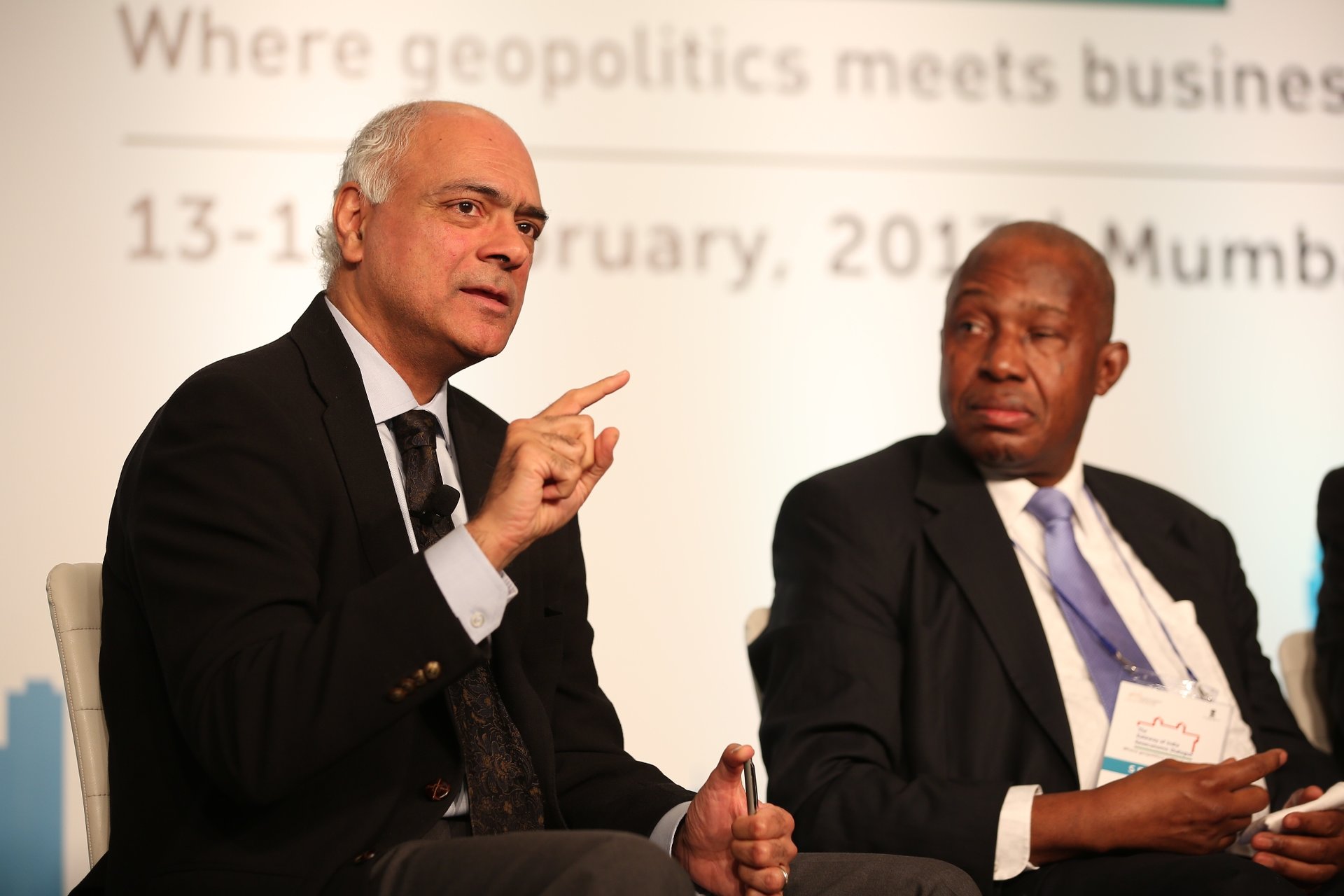
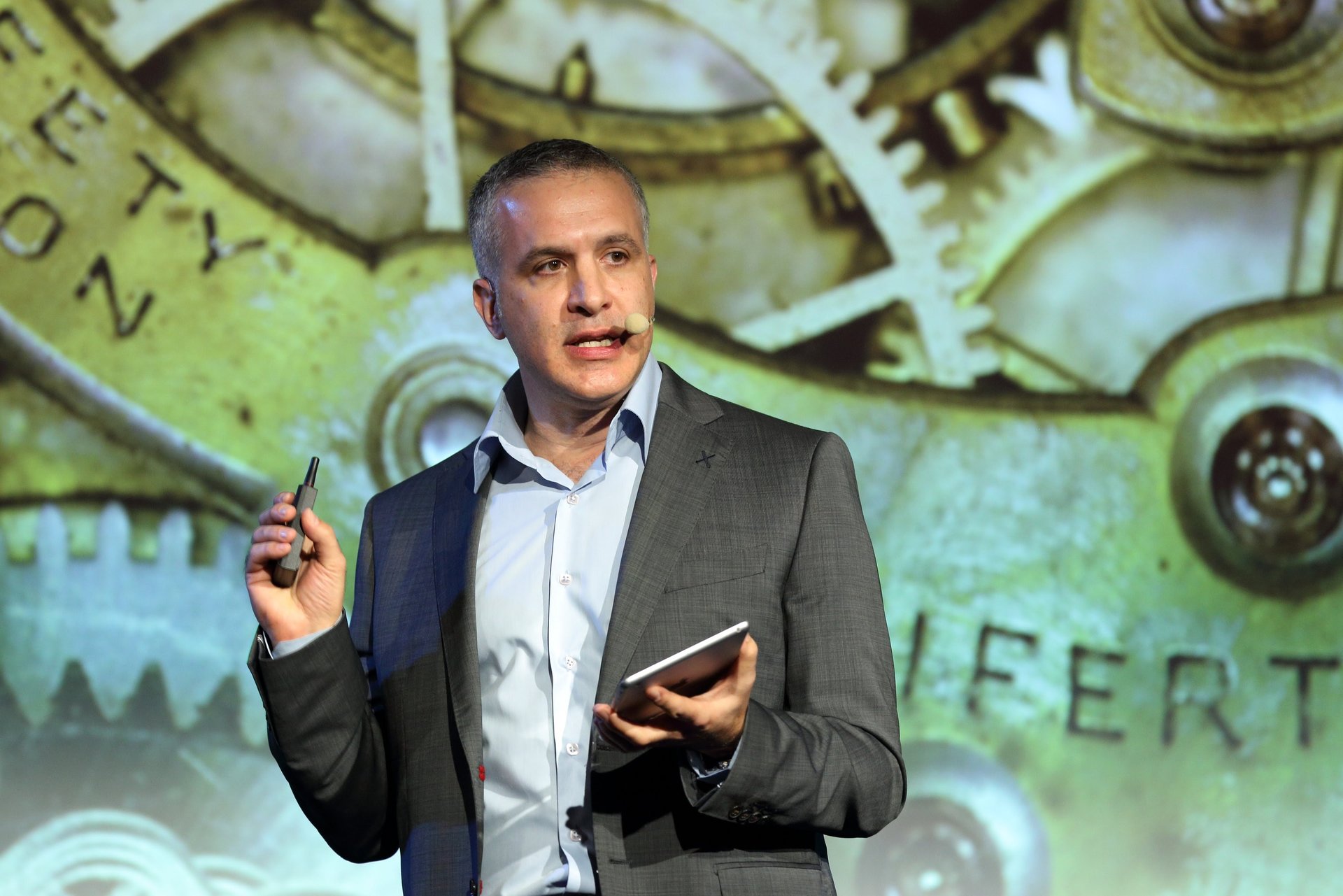
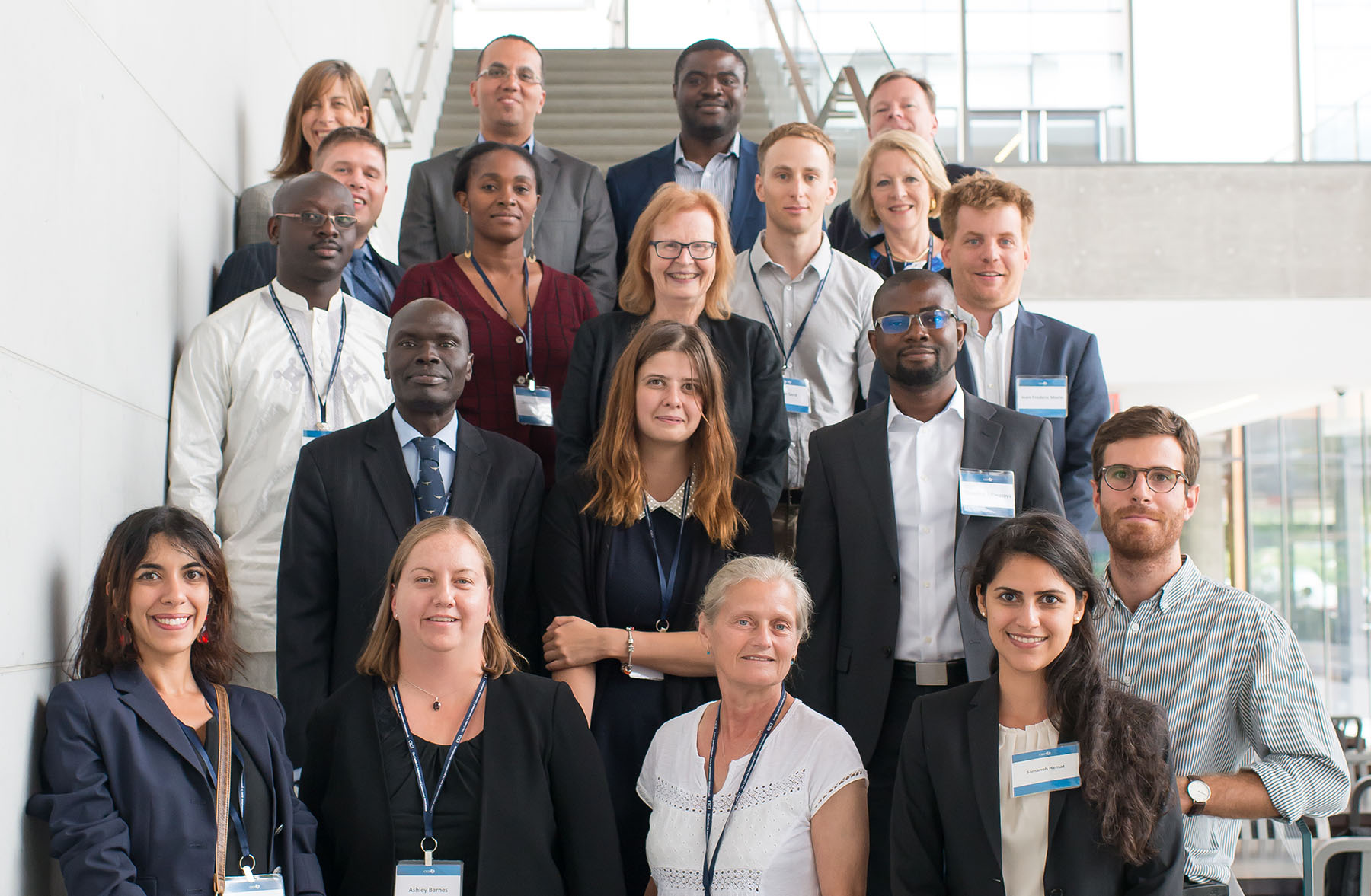
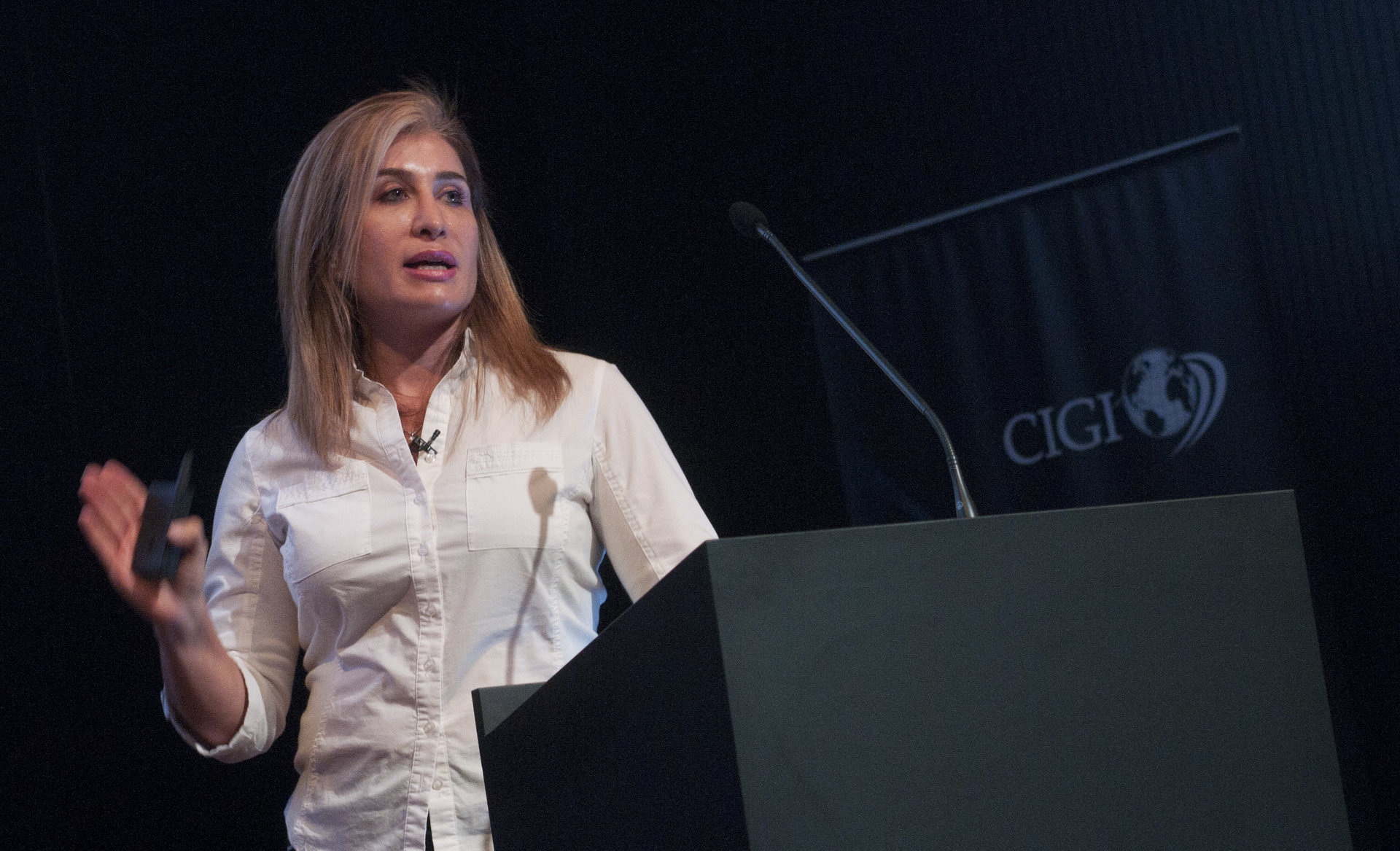
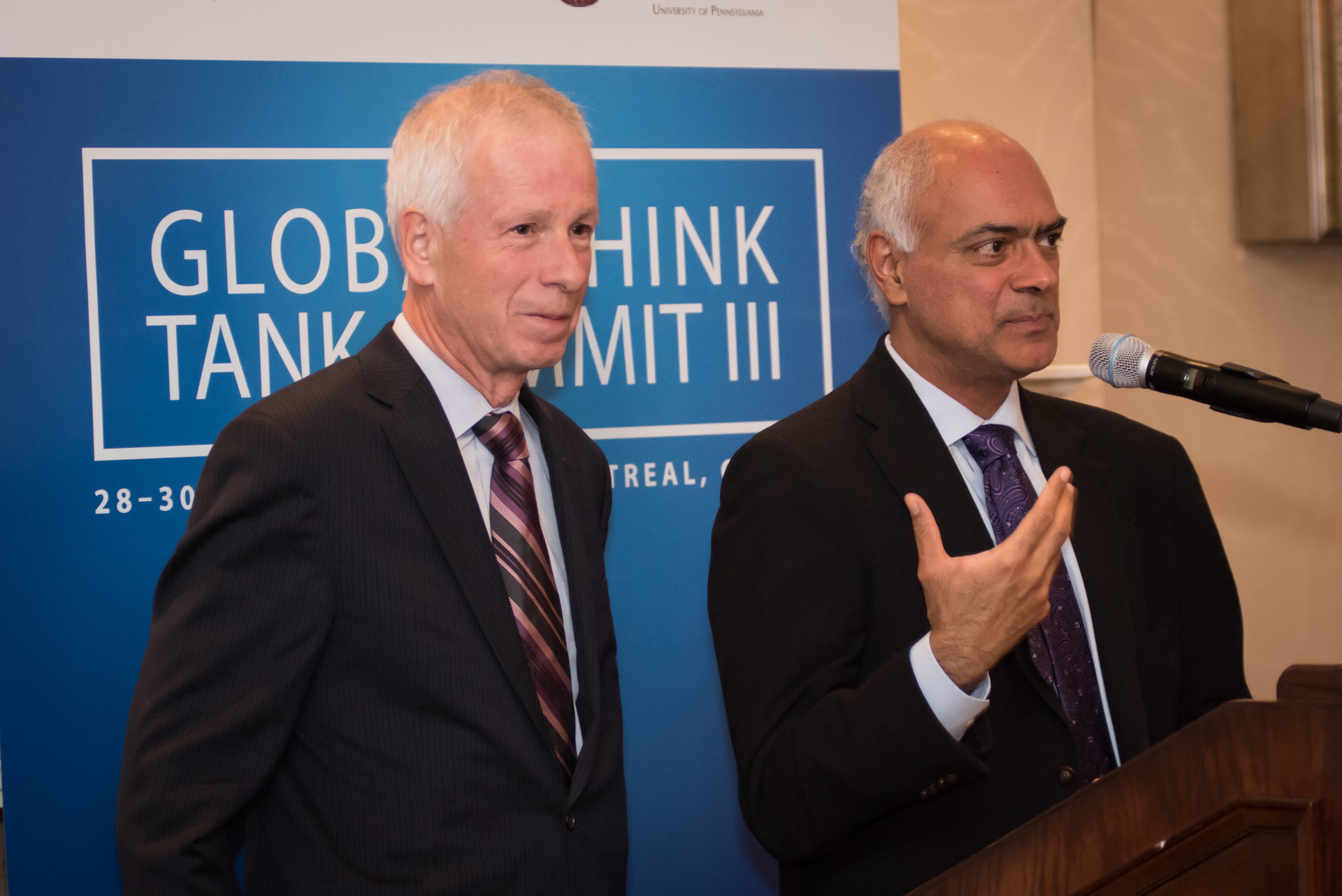
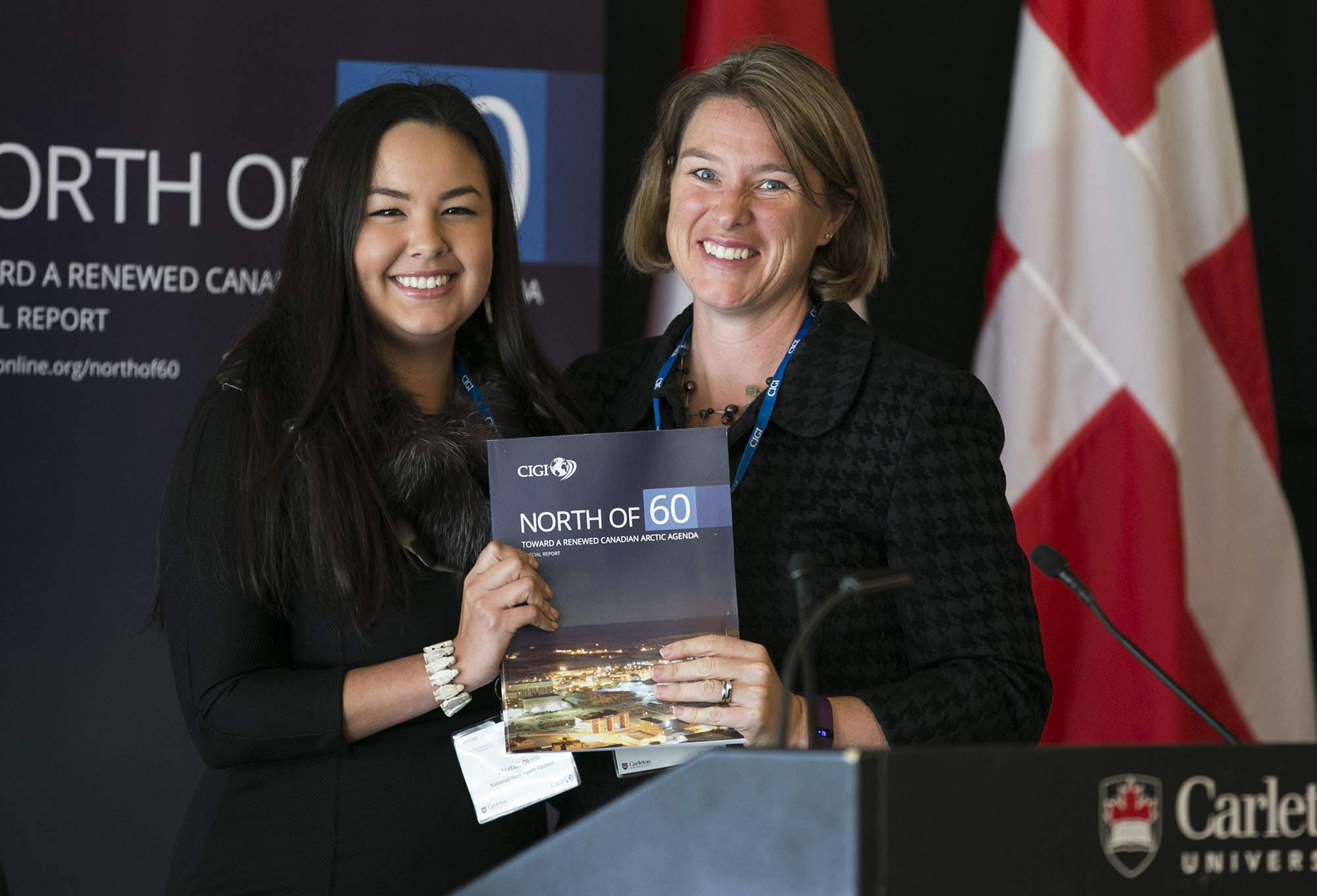
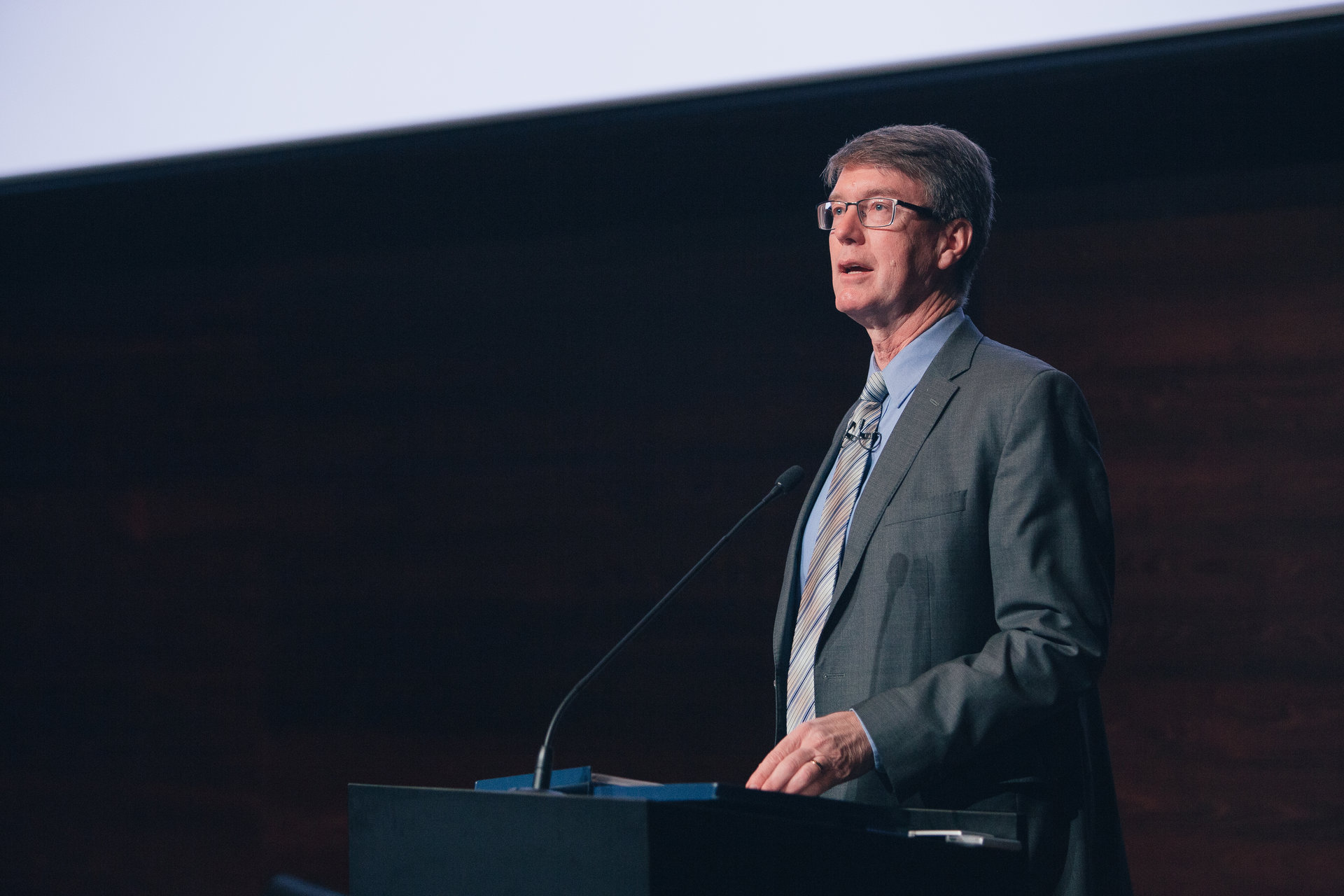
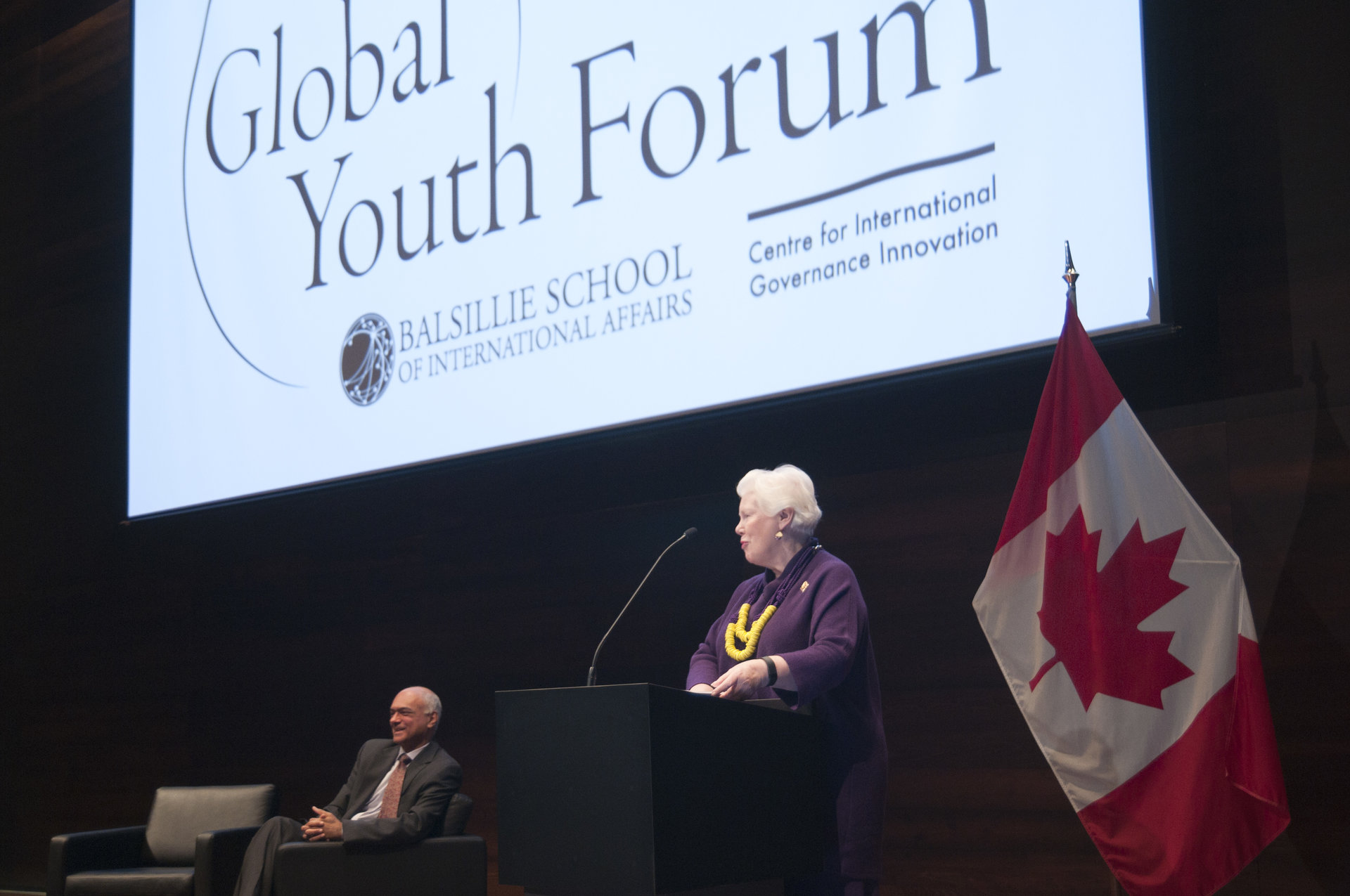
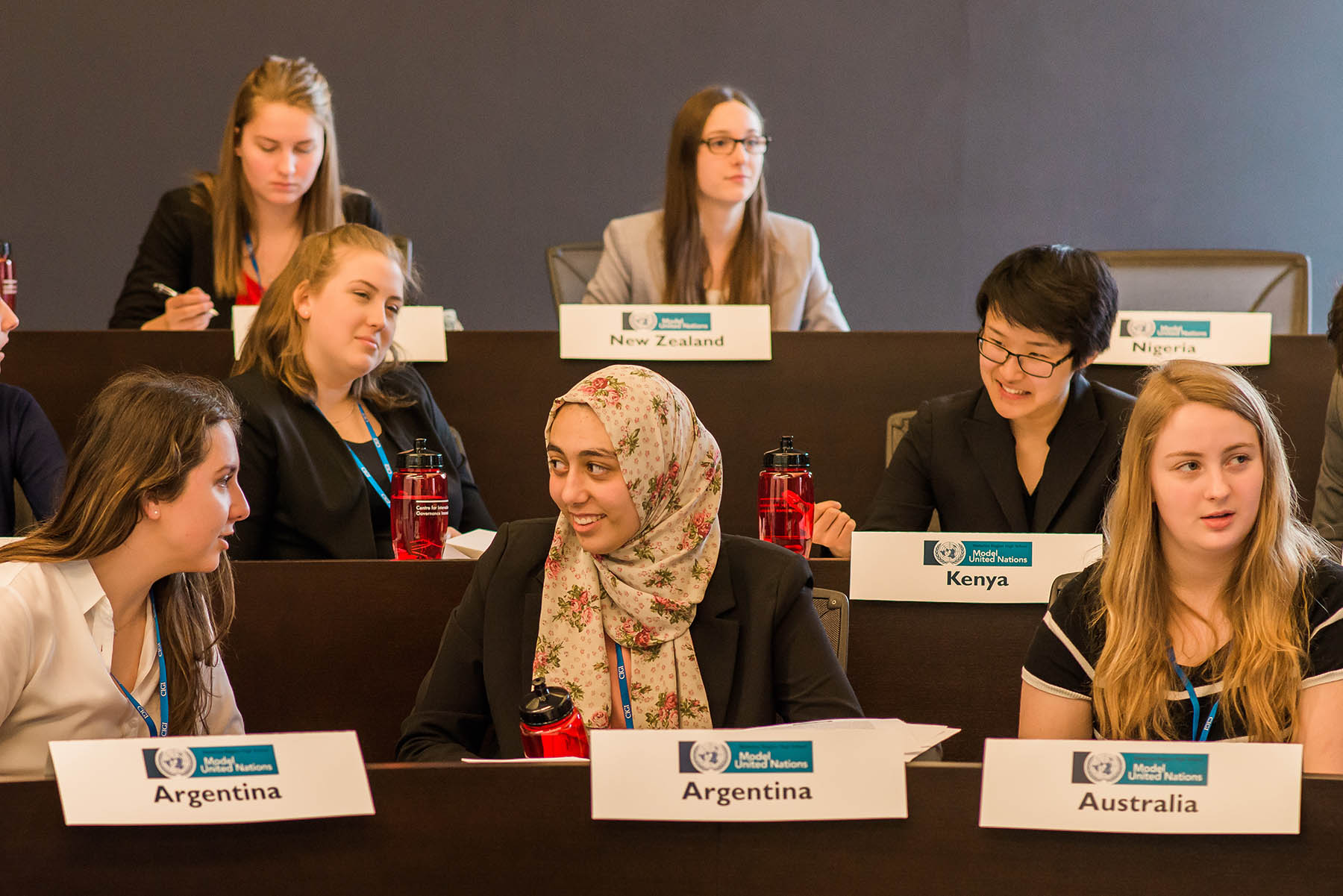
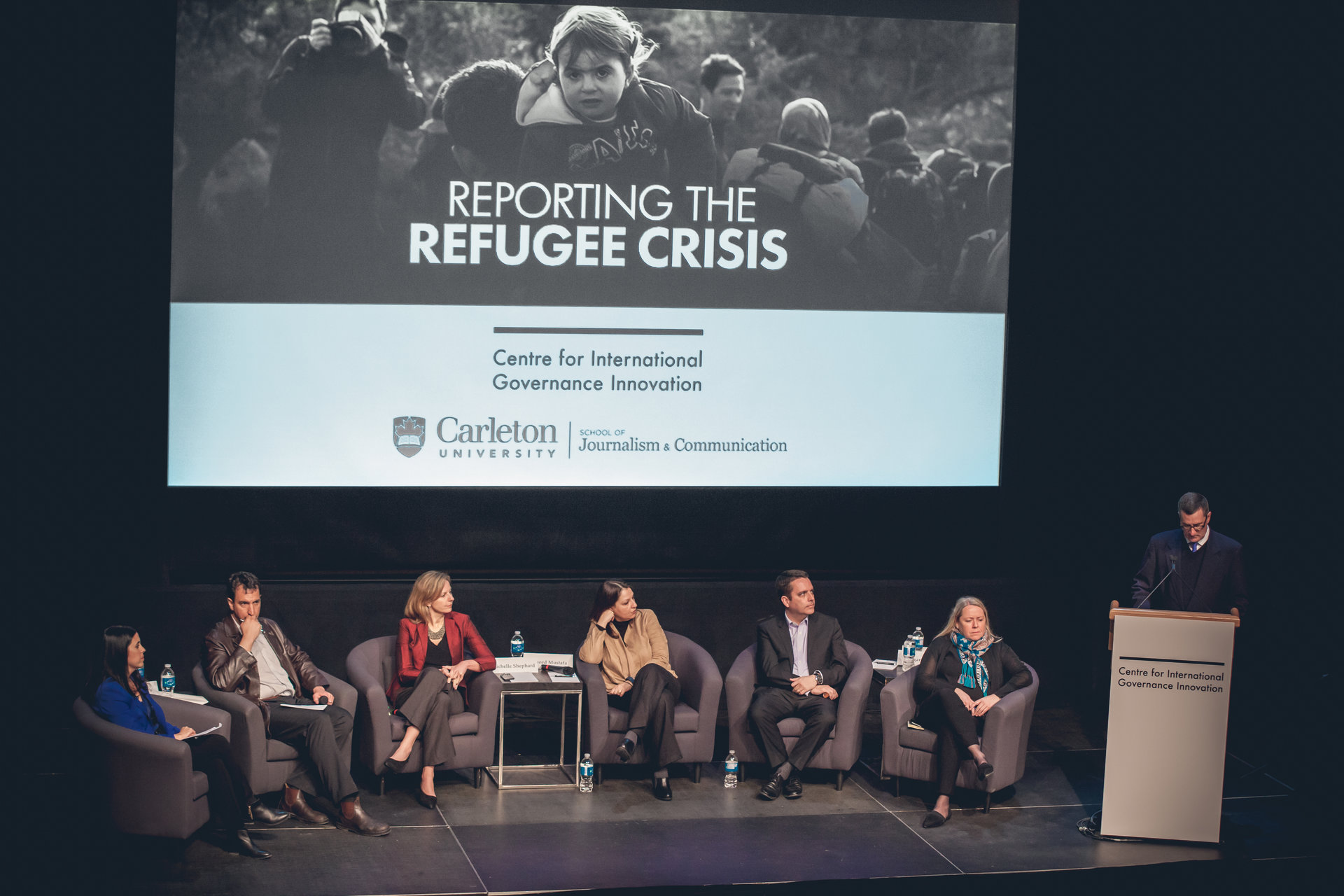
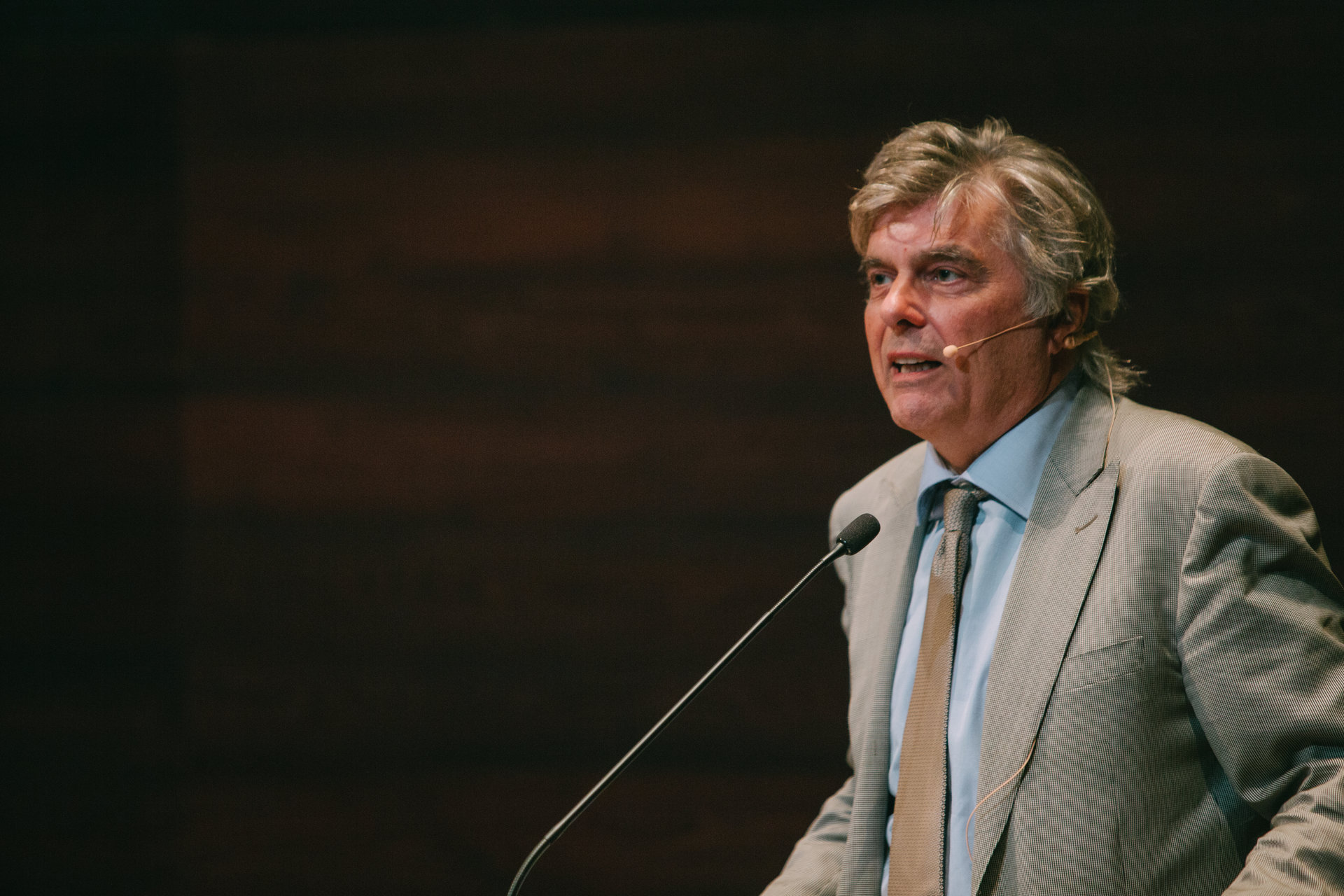
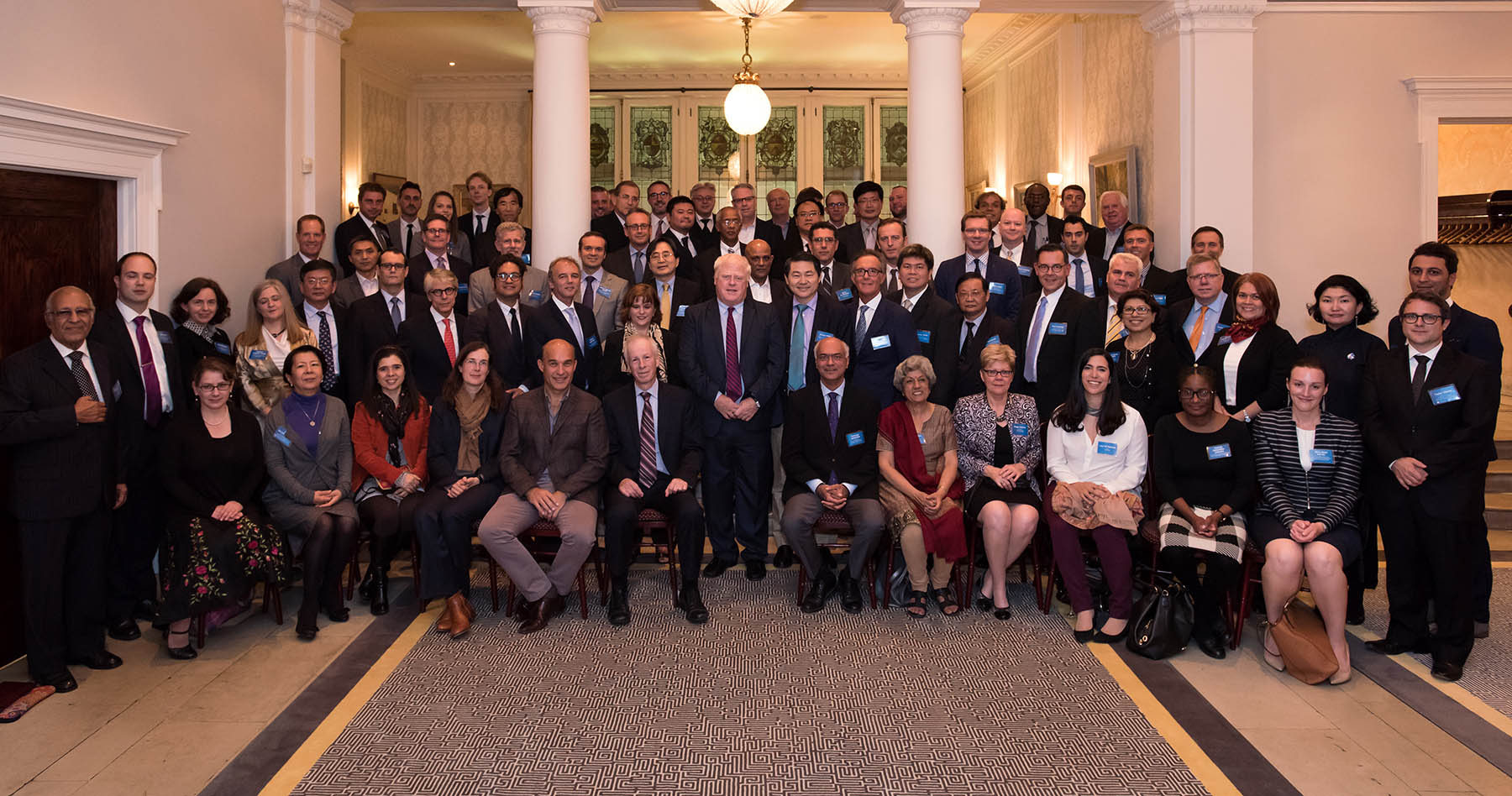
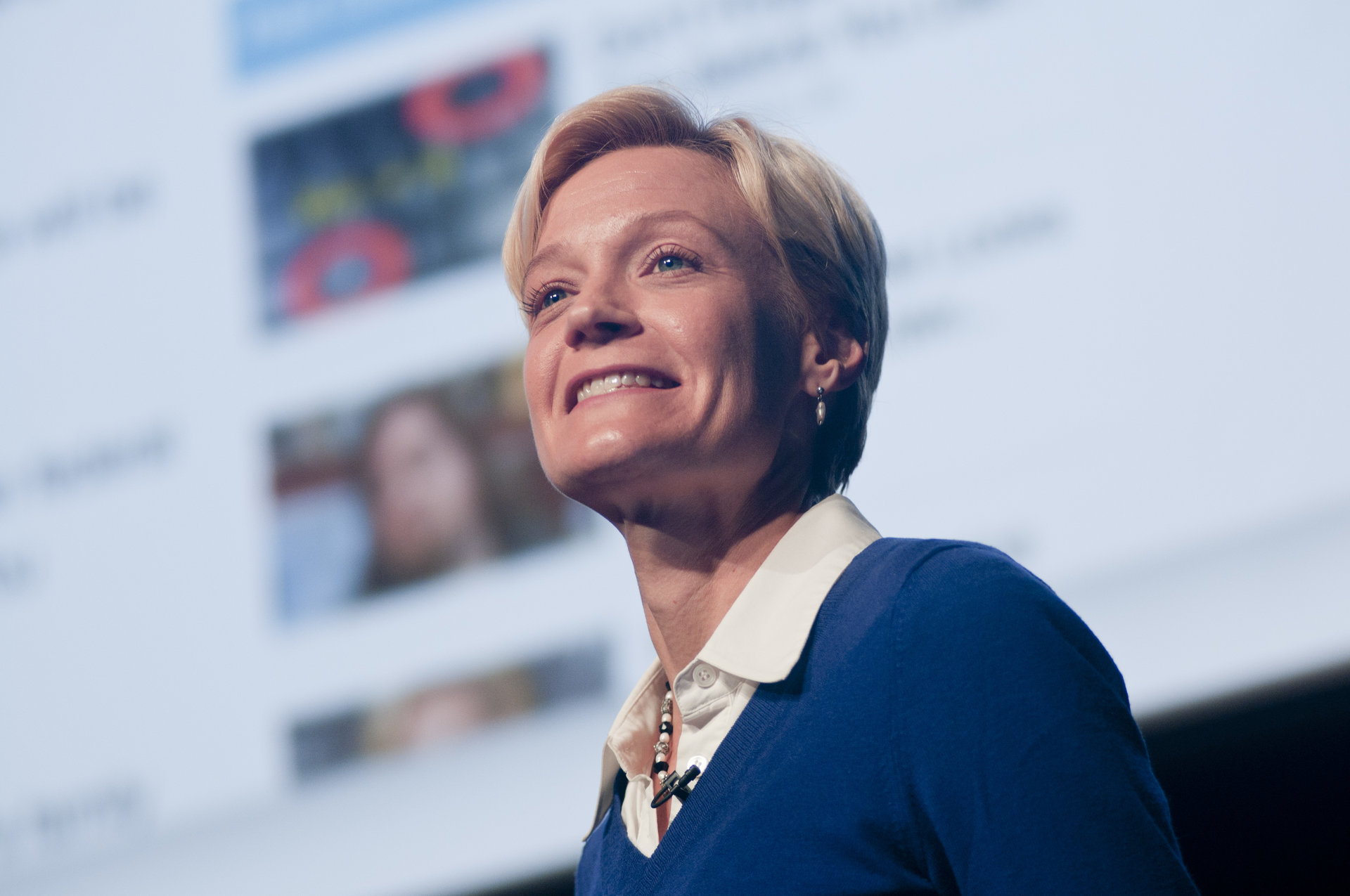
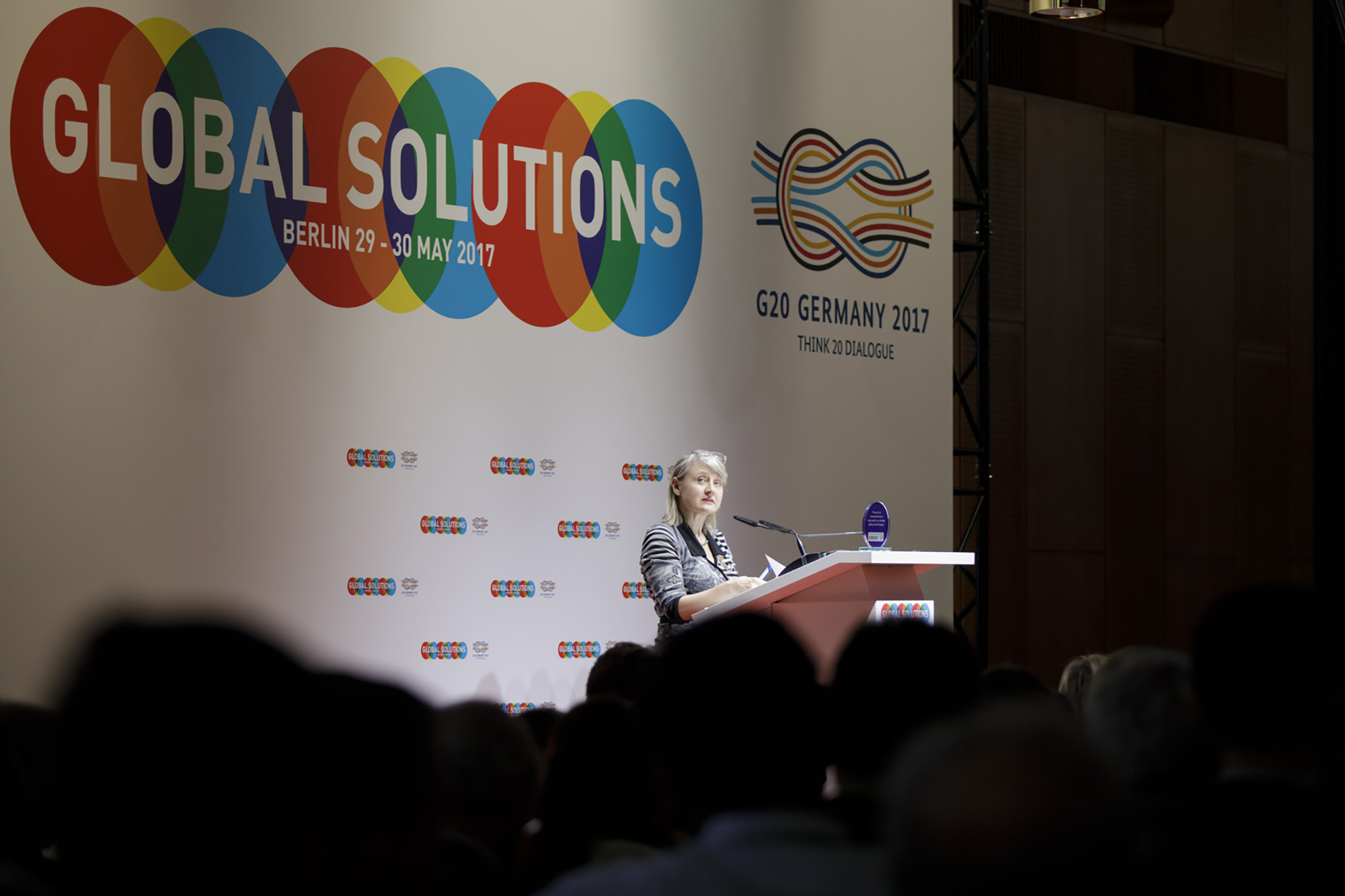
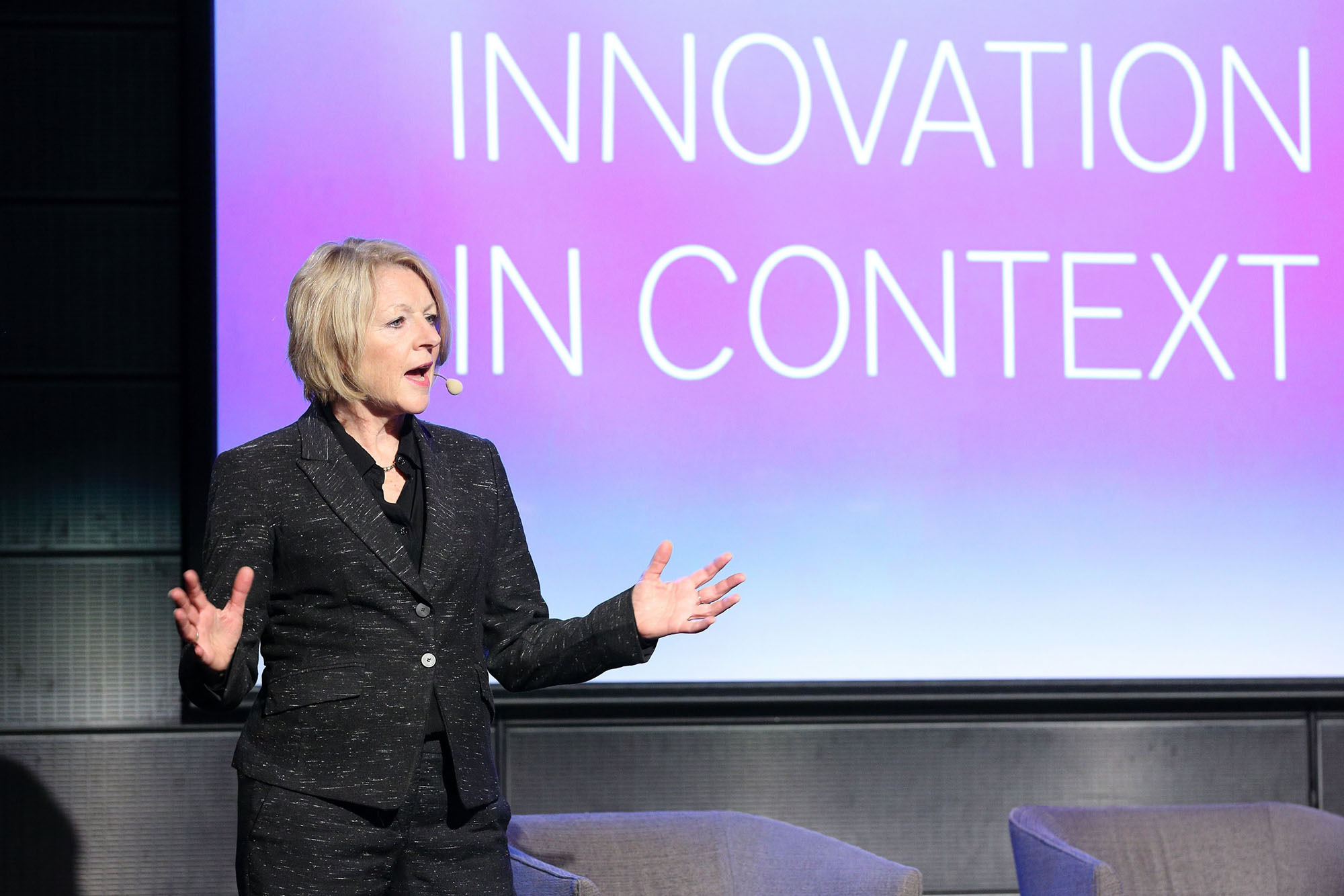
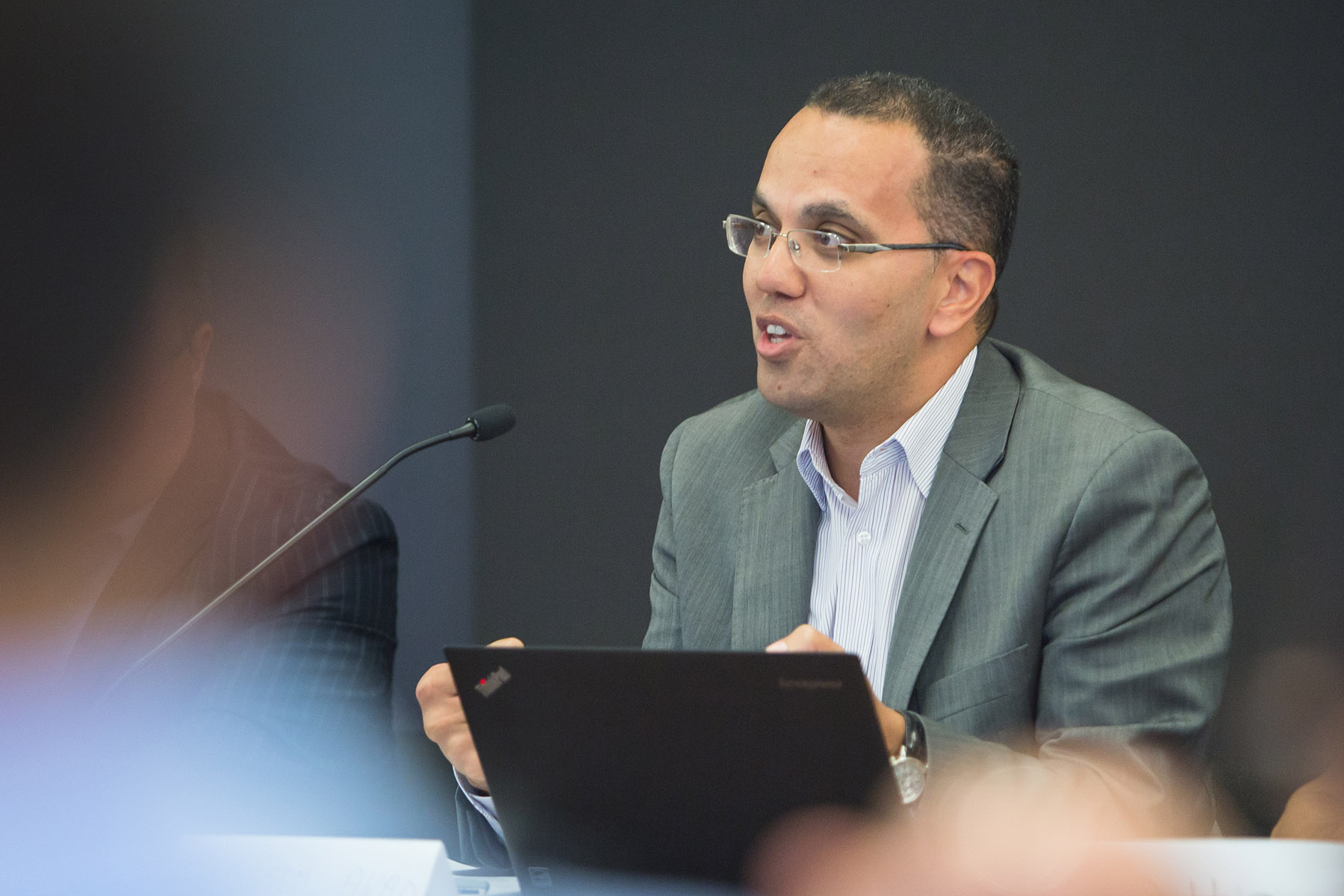

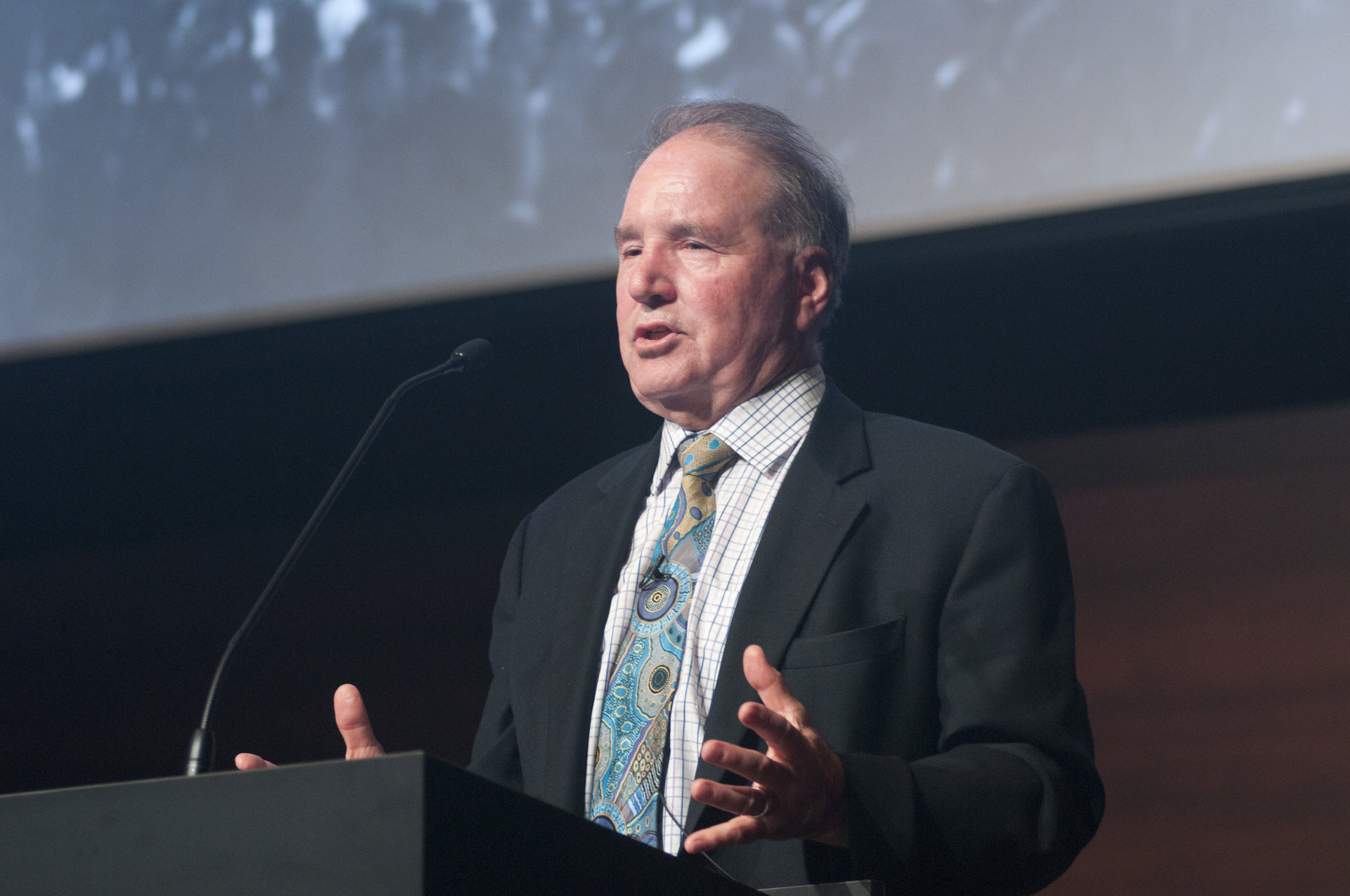
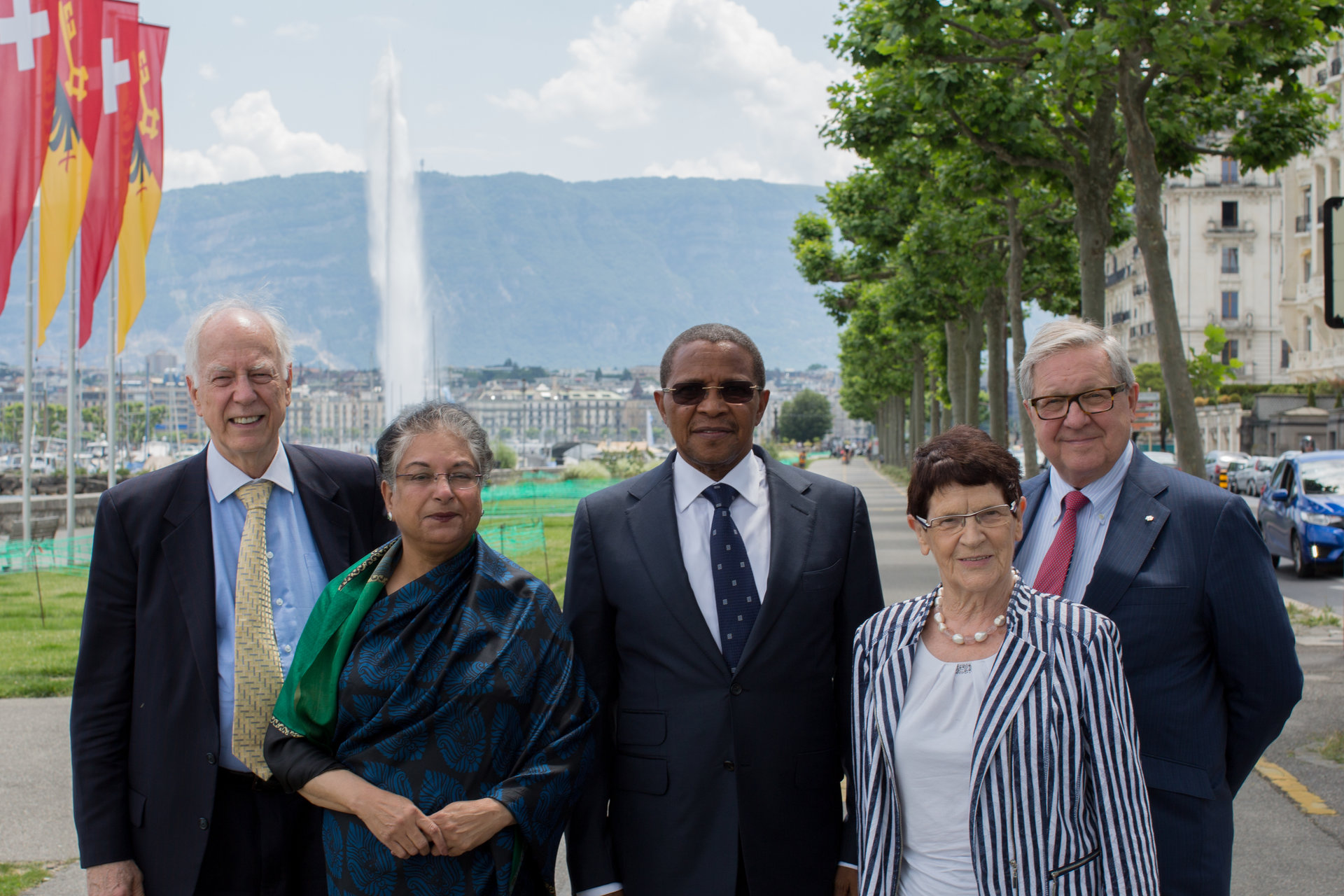
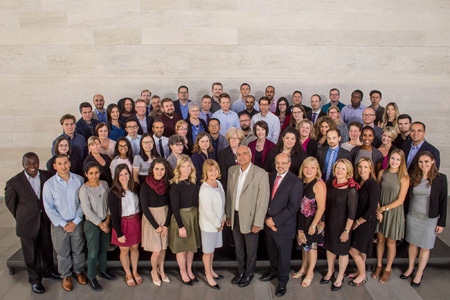
The success stories in this annual report, and the many others not highlighted here, are the direct result of the timely, relevant and innovative work of CIGI’s staff and fellows. Their work is a testament to CIGI’s mission to build bridges from knowledge to power.
But none of this would be possible without CIGI’s valued network of partners. We thank the Governments of Canada and Ontario, the City of Waterloo, founder Jim Balsillie, and our many partners in the local and global communities for their ongoing support of our work.
This new, interactive annual report is part of CIGI’s digital-first approach to addressing the world’s most pressing international governance questions. Follow cigionline.org over the coming year as we offer research, opinion and expertise on, to name a few, Indigenous issues, developing a data strategy for Canada and the Group of Seven summit, which Canada will host in Charlevoix, Quebec.